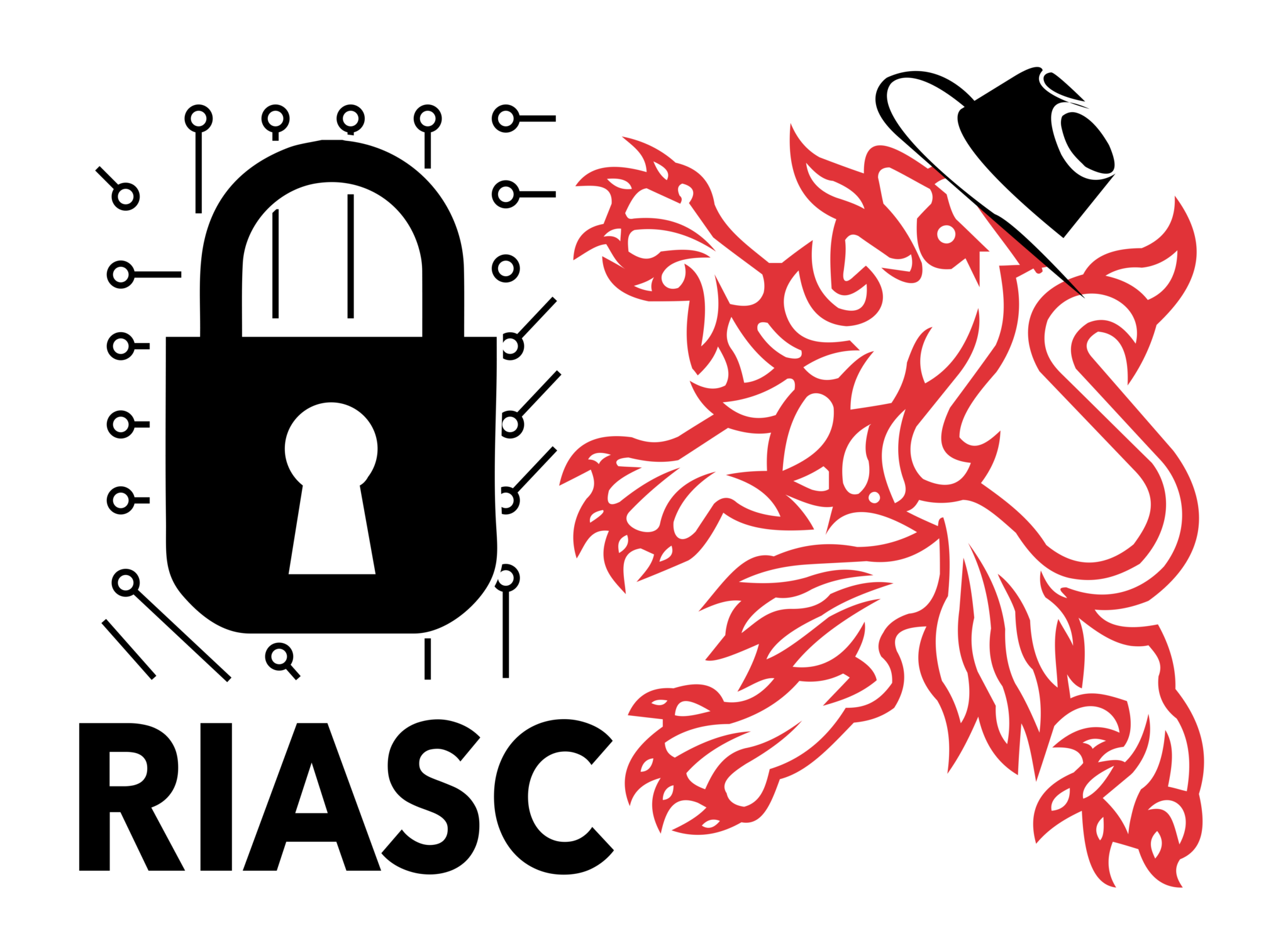Actas
Las actas de RECSI 2024 están publicadas por el Servicio de Publicaciones de la Universidad de León.
Puedes descargarlas en este enlace: https://buleria.unileon.es/handle/10612/24551.
Localización
Accede al mapa completo aquí
Programa
Miércoles 23 de Octubre
| 08:30-09:00 | Registro | ||||||||||||||
| 09:00-09:30 | Inauguración Salón de Actos |
||||||||||||||
| 09:30-10:30 | Conferencia Plenaria Sofía Celí Salón de Actos |
||||||||||||||
| 10:30-11:30 |
|
||||||||||||||
| 11:30-12:00 | Coffee Break | ||||||||||||||
| 12:00-14:00 |
|
||||||||||||||
| 14:00-16:00 | Comida Restaurante El Modernista Plaza de San Marcelo, 5 |
||||||||||||||
| 16:00-18:30 |
|
||||||||||||||
| 17:00-17:30 | Coffee Break | ||||||||||||||
| 17:30-18:10 |
|
||||||||||||||
| 18:15-20:00 | Visita a León y Catedral | ||||||||||||||
| 21:00 | Cocktail de bienvenida Restaurante Real Colegiata de San Isidoro Plaza San Martino, 5 |
Jueves 24 de Octubre
| 09:00-10:00 | Conferencia Plenaria Javier Lopez Salón de Actos |
||||||||||||||
| 10:00-11:30 |
|
||||||||||||||
| 11:30-12:00 | Coffee Break | ||||||||||||||
| 12:00-14:00 |
|
||||||||||||||
| 14:00-16:00 | Comida Restaurante Ezequiel Calle Ancha Calle Ancha, 20 |
||||||||||||||
| 15:45-16:00 | Foto de Grupo | ||||||||||||||
| 16:00-17:00 | Conferencia Plenaria Ángela Robinson Salón de Actos |
||||||||||||||
| 17:00-18:00 | Mesa Redonda “Criptología y Seguridad de la Información: Desafíos y oportunidades en un mundo digital e hiperconectado” Salón de Actos |
||||||||||||||
| 18:00-18:30 | Coffee Break | ||||||||||||||
| 18:30-20:00 | Proyección del documental “Equipo D. Los códigos olvidados” Teatro El Albeitar Av. Facultad de Veterinaria, 25 |
||||||||||||||
| 21:00 | Cena de Gala Parador San Marcos Plaza de San Marcos, 7 |
Viernes 25 de Octubre
| 09:00-10:00 | Conferencia Plenaria Rainer Steinwandt Salón de Actos |
||||||||||||
| 10:00-11:30 |
|
||||||||||||
| 11:30-12:00 | Coffee Break | ||||||||||||
| 12:00-14:00 |
|
||||||||||||
| 14:00-14:15 | Clausura Salón de Actos |
||||||||||||
| 14:00-16:00 | Comida Hotel Conde Luna Av. Independencia, 7 |
||||||||||||
| 16:00 | Visita Museo de San Isidoro Plaza de San Isidoro, 4 |
Ponentes
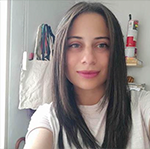
Sofía Celi
Brave
Sofía Celi is a cryptography researcher at Brave. She researches around privacy-preserving technologies and post-quantum cryptography. She is also the co-chair of hprc at IRTF, pquip at IETF, and anti-fraud at W3C. She won the IEEE S&P Distinguished paper award in 2023, and is part of the Steering Comittee of LatinCrypt.
| La criptografía en el futuro |
|
En esta charla, vamos a explorar qué tendencias actuales hay en la criptografía y como evolucionarán en el futuro. Vamos a explorar cuáles caminos emocionantes tiene la investigación en criptografía en el futuro: desde PIR, ZKP aplicado, a post-quántico. |
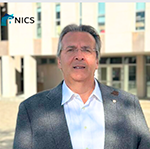
Javier Lopez
Universidad de Málaga
Javier López es Catedrático de Ingeniería Telemática en la Universidad de Málaga, así como Director del Grupo de Investigación “Network, Information and Computer Security (NICS) Lab”, y centra su actividad investigadora principalmente en las áreas de Servicios y Protocolos de Seguridad en Redes y Protección de Infraestructuras Críticas, áreas en las que ha dirigido más de medio centenar de proyectos y contratos de investigación, entre ellos quince proyectos financiados por la Comisión Europea.
Actualmente, es Consejero del International Security Advisory Board de Huawei, y Vice-Chair del Comité IFIP TC11 (Security and Privacy Protection in Information Processing Systems), habiendo sido el representante español en el mismo durante quince años. Con anterioridad, ha sido Presidente de la Red de Excelencia Nacional de Investigación en Ciberseguridad (RENIC), así como Presidente del Subcomité de estandarización en Protección de Datos, Privacidad y Gestión de la Identidad de UNE/AENOR. Igualmente, Chair del ERCIM WG on Security and Trust Management y Chair del IFIP WG on Trust Management.
Adicionalmente, también ha sido co-Editor in Chief del “International Journal of Information Security” desde 2004 a 2021, y miembro de los Consejos Editoriales de otra decena de revistas internacionales, entre las que destacan “IEEE Transactions on Dependable and Secure Computing”, “IEEE Wireless Communications”, “Computers & Security” y “IEEE Internet of Things Journal”.
| Gemelos Digitales – una perspectiva de seguridad sobre arquitecturas y estándares |
|
La aparición de los Gemelos Digitales (Digital Twins, DTs) y su aplicación en la mejora de muchos modelos de negocio está atrayendo cada vez más la atención de multitud de empresas. Esta tecnología está demostrando un alto valor en la predicción de fallos, la detección de situaciones anormales y, por tanto, la mejora de los entornos industriales. Además, son capaces de virtualizar y simular activos del mundo físico, lo cual optimiza procesos en muchos dominios de aplicación, a la vez que ofrecen servicios de interés como mantenimiento predictivo, monitorización en tiempo real y gestión de seguridad. De hecho, las capacidades de simulación de los DTs se pueden utilizar como un recurso para soluciones de seguridad, mientras que al mismo tiempo la virtualización se puede utilizar para probar y validar los enfoques de esas soluciones. Al igual que con muchas otras tecnologías, el despliegue completo de los DTs de manera segura y coherente depende en gran medida de los esfuerzos de estandarización de los organismos internacionales. En esta presentación profundizaremos en estas cuestiones, considerando y analizando también el esfuerzo realizado por esos organismos y los problemas que aún tienen que resolver. |
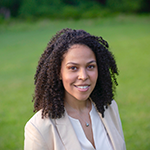
Angela Robinson
NIST
Angela Robinson is a mathematician in the Computer Security Division of the National Institute of Standards and Technology (NIST). Her research focuses on code-based cryptography and cryptanalysis in the hamming metric and privacy-enhancing cryptography. She has participated in the NIST Post Quantum Cryptography Standardization project since joining NIST in October 2018. She has contributed to cryptographic standards development and standards updates in FIPS 186-5, NIST SP800-186, FIPS 203, NIST SP800-227, and several NISTIR’s.
Dr. Robinson currently serves as the co-chair for the Privacy R&D Interagency Working Group, one of 13 coordination areas of the United States’ Networking and Information Technology R&D program. She helped develop the United States’ National Strategy to Advance Privacy-Preserving Data Sharing and Analytics which was released at the 2023 White House Summit for Democracy. She is now helping lead the development of the 2024 National Privacy R&D Strategy. Dr. Robinson received the 2023 Women in Technology Rising Star Award which honors a woman in the beginning stages of her career who has demonstrated exemplary leadership traits and mentorship.
| The NIST Post-Quantum Cryptography Standards |
|
Advances in quantum computing and technology pose a threat to some widely-deployed digital signature and key establishment algorithms standardized by the National Institute of Standards and Technology (NIST). A public process was initiated by NIST in 2016 to identify, select, and standardize quantum-resistant algorithms to mitigate the looming quantum threat. NIST announced the selection of four algorithms to be standardized in 2022 and released the first three standards in August 2024, with the fourth standard expected to be released in early 2025. In addition to the four selected algorithms, four additional key establishment algorithms remain under consideration while forty digital signature algorithms are newly under consideration for future standardization. In this talk we explore the history and current activities of the NIST Post-Quantum Standardization project. We will discuss lessons learned and current approaches to develop a robust and secure set of public-key quantum-resistant standards that will support the United States Federal Government’s goal to transition to quantum-resistant cryptography by 2035. |
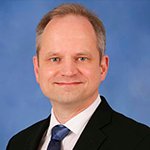
Rainer Steinwandt
University of Alabama in Huntsville
Rainer Steinwandt is with The University of Alabama in Huntsville in the United States, where he serves as Dean of the College of Science and as Professor in the Department of Mathematical Sciences. Before that, he served as Chair of the Department of Mathematical Sciences at Florida Atlantic University (FAU) and Director of FAU’s Center for Cryptology & Information Security. His primary research interest is in quantum-resistant cryptography. For a multi-year project in this area, funded through the NATO Science for Peace and Security Programme, he received a 2018 NATO SPS Partnership Prize. Currently, he serves as NATO country Project Director for a multi-year project devoted to “Secure Communication via Classical and Quantum Technologies” with partners from Finland, Slovakia, and Spain.
| Quantum-resistant cryptography — an interdisciplinary opportunity |
| Post-quantum and quantum cryptography use different avenues to contribute to a quantum-resistant cryptographic infrastructure. Both approaches experience challenges, and effective collaboration across the two research communities seems underdeveloped. At the same time, continuing progress in the development of scalable quantum hardware underscores the need for reliable quantum-resistant cryptography. Using efforts supported by the NATO Science for Peace and Security program as an example, the talk discusses some collaboration opportunities for multidisciplinary research offered by quantum-resistant cryptography. |
Colaboradores

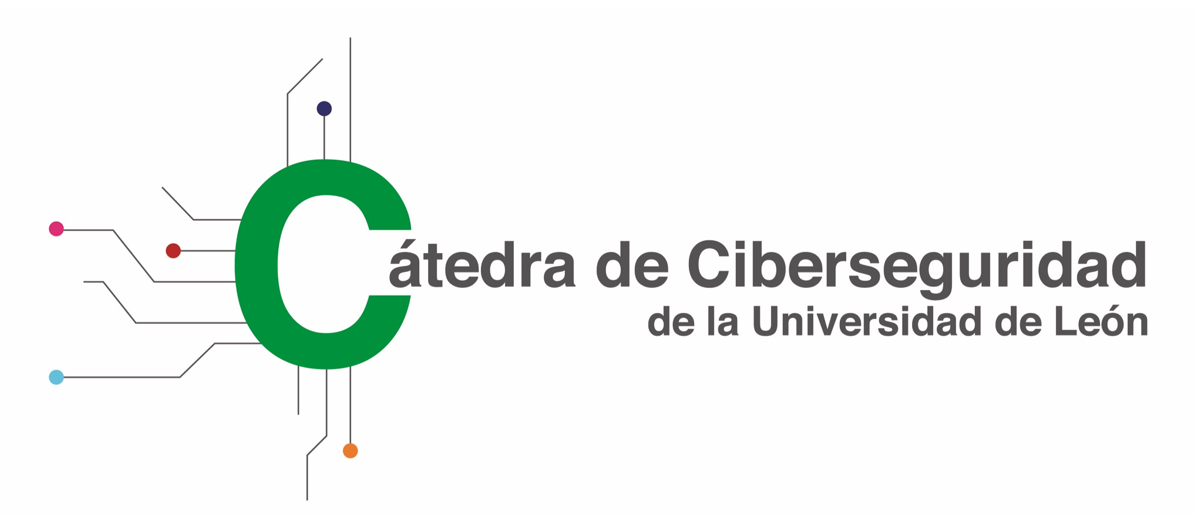
La Cátedra de Ciberseguridad de la Universidad de León, en colaboración con el Instituto Nacional de Ciberseguridad (INCIBE), entidad dependiente del Ministerio para la Transformación Digital y de la Función Pública, a través de la Secretaría de Estado de Digitalización e Inteligencia Artificial organiza RECSI 2024.
Esta actividad es parte del convenio entre INCIBE y la Universidad de León incluido en el programa de Cátedras de Ciberseguridad en España, en el marco del Plan de Recuperación, Transformación y Resiliencia, con la financiación de los Fondos Next Generation-EU.

